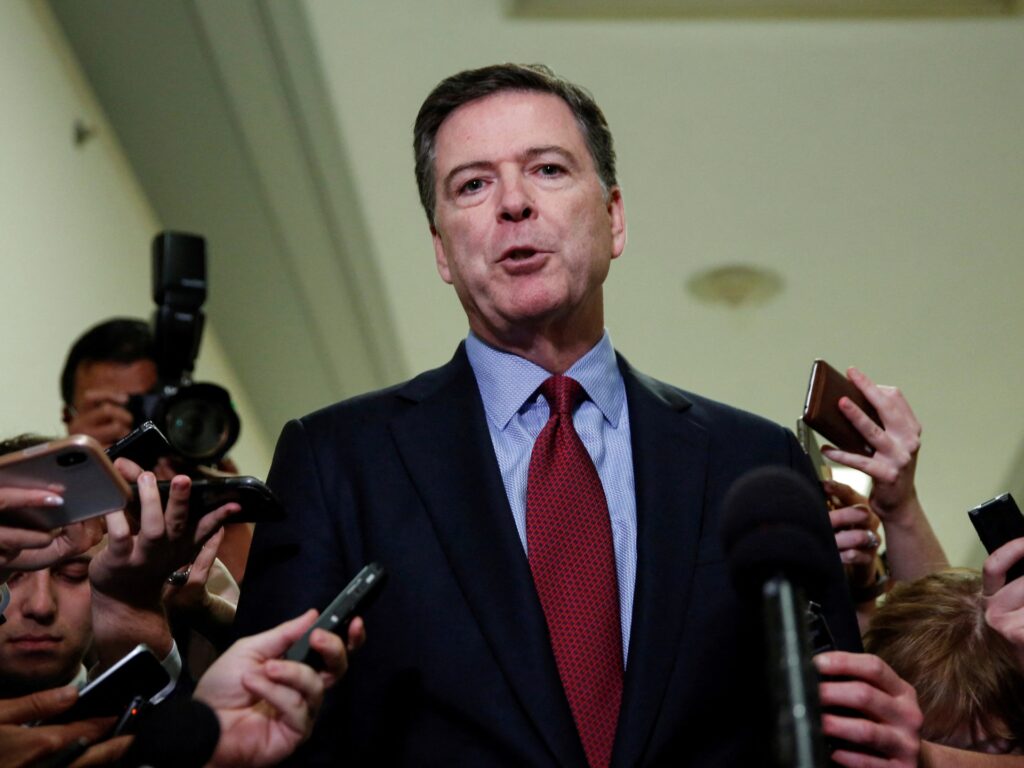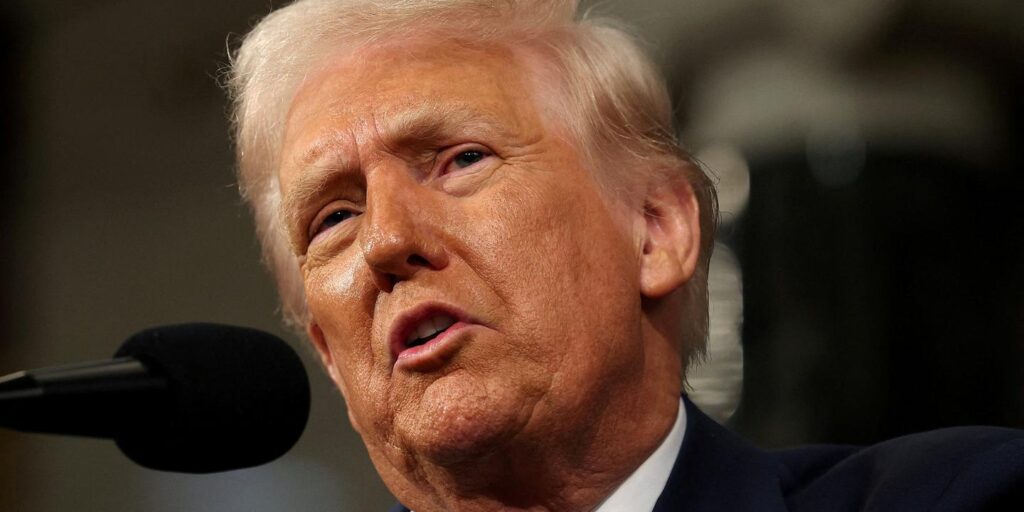The United States Department of Justice has acknowledged that the grand jury reviewing the case against James Comey, a former director of the Federal Bureau of Investigation (FBI), did not receive a copy of the final indictment against him.
That revelation on Wednesday came as lawyers for Comey sought to have the indictment thrown out of court.
Recommended Stories
list of 3 itemsend of list
At a 90-minute hearing in a federal court in Alexandria, Virginia, Comey’s lawyers argued that the case should be dismissed outright, not only for the prosecutorial missteps but also due to the interventions of President Donald Trump.
Comey is one of three prominent Trump critics to be indicted between late September and mid-October.
The hearing took place before US District Judge Michael Nachmanoff, and Comey’s defence team alleged that Trump was using the legal system as a tool for political retribution.
“This is an extraordinary case and it merits an extraordinary remedy,” defence lawyer Michael Dreeben said, calling the indictment “a blatant use of criminal justice to achieve political ends”.
The Justice Department, represented by prosecutor Tyler Lemons, maintained that the indictment met the legal threshold to be heard at trial.
But Lemons did admit, under questioning, that the grand jury that approved the indictment had not seen its final draft.
When Judge Nachmanoff asked Lemons if the grand jury had never seen the final version, the prosecutor conceded, “That is my understanding.”
It was the latest stumble in the Justice Department’s efforts to prosecute Comey for allegedly obstructing a congressional investigation and lying to senators while under oath.
Comey has pleaded not guilty to the two charges, and his defence team has led a multipronged effort to see the case nixed over its multiple irregularities.
Scrutiny over grand jury proceedings
Questions over the indictment — and what the grand jury had or had not seen — had been brewing since last week.
On November 13, US District Judge Cameron McGowan Currie raised questions about a span of time when it appeared that there appeared to be “no court reporter present” during the grand jury proceedings.
Then, on Tuesday, Magistrate Judge William Fitzpatrick took the extraordinary step of calling for the grand jury materials to be released to the Comey defence team, citing “a disturbing pattern of profound investigative missteps”.
They included misleading statements from prosecutors, the use of search warrants pertaining to a separate case, and the fact that the grand jury likely did not review the final indictment in full.
Separately, in Wednesday’s hearing, Judge Nachmanoff pressed acting US Attorney Lindsey Halligan about who saw the final indictment.
After repeated questions, she, too, admitted that only the foreperson of the grand jury and a second grand juror were present for the returning of the indictment.
Halligan oversaw the three indictments against the Trump critics: Comey, New York Attorney General Letitia James and former National Security Adviser John Bolton.
All three have denied wrongdoing, and all three have argued that their prosecution is part of a campaign of political vengeance.
Spotlight on Trump-Comey feud
Wednesday’s hearing focused primarily on establishing that argument, with Comey’s lawyers pointing to statements Trump made pushing for the indictments.
Comey’s defence team pointed to the tense relationship between their client and Trump, stretching back to the president’s decision to fire Comey from his job as FBI director in 2017.
Comey had faced bipartisan criticism for FBI investigations into the 2016 election, which Trump ultimately won.
Trump, for example, accused the ex-FBI leader of going easy on his Democratic rival, Hillary Clinton, calling him a “slime ball”, a “phony” and “a real nut job”.
“FBI Director Comey was the best thing that ever happened to Hillary Clinton in that he gave her a free pass for many bad deeds,” Trump wrote on social media in May 2017.
Comey, meanwhile, quickly established himself as a prominent critic of the Trump administration.
“I don’t think he’s medically unfit to be president. I think he’s morally unfit to be president,” Comey told ABC News in 2018.
He added that a president must “embody respect” and adhere to basic values like truth-telling. “This president is not able to do that,” Comey said.
In Wednesday’s hearing, Comey’s defence also pointed to the series of events leading up to the former FBI director’s indictment.
Last September, Trump posted on social media a message to Attorney General Pam Bondi, calling Comey and James “guilty as hell” and encouraging her not to “delay any longer” in seeking their indictments.
That message was “effectively an admission that this is a political prosecution”, according to Dreeben, Comey’s lawyer.
Shortly after the message was posted online, Halligan was appointed as acting US attorney for the Eastern District of Virginia
She replaced a prosecutor, Erik Siebert, who had reportedly declined to indict Comey and others for lack of evidence. Trump had denounced him as a “woke RINO”, an acronym that stands for “Republican in name only”.
Dreeben argued that switcheroo also signalled Trump’s vindictive intent and his spearheading of the Comey indictment.
But Lemons, representing the Justice Department, told Judge Nachmanoff that Comey “was not indicted at the direction of the president of the United States or any other government official”.


